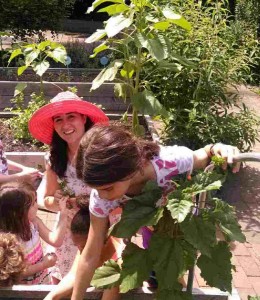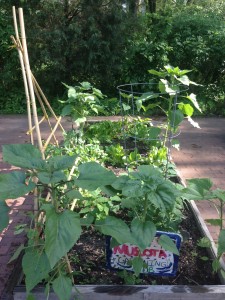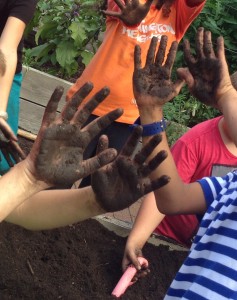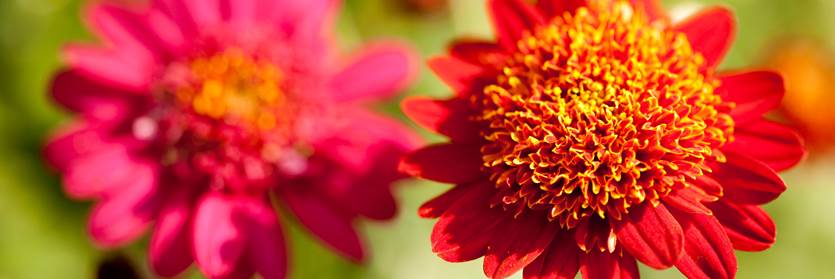Miss Ayala’s School Garden Plots
Posted in Children's Education on April 2 2015, by Plant Talk

Marissa Ayala is a school garden pioneer, at least in the eyes of her students and colleagues at Muscota New School in Manhattan.
Ayala had taken informational gardening courses before, but needed to polish how she tied gardening skills back to K–5 science curriculum. So, she enrolled in School Gardening 101 in February this year at The New York Botanical Garden. She wanted to get to know other educators who share her mission and to gain NYBG staff expertise to elevate her knowledge and ability to instruct a more rigorous curriculum.
“I wanted to make sure the garden was used in as meaningful a way as it could be,” she said.
Her biggest takeaway was the idea of intentionality; her students investigate specific scientific concepts on each visit to their garden plots—from photosynthesis and renewable energy to geometry and problem solving. This way, Ayala connects the purpose of each visit to the curriculum taught in her classroom.
“In the NYBG course, I was taken through all of those steps to internalize how to do that as an educator,” she said. “The training was a great opportunity to learn how to explore the garden in multiple ways. It’s really a matter of bringing the instruction up to the point where every single time kids go out in the garden, there’s intention, and it ties back to the curriculum.”

For example, in their unit on composting and soil health, students learn to identify the qualities of healthy soil. Then, they visit the garden to sift and turn compost to enrich the soil.
In the School Gardening 101 course, Ayala found support from other teachers also excited about starting or building upon programs in their schools and about creating a culture of rigorous science within a garden setting.
It’s this very culture Ayala is promoting with each student in every grade at her school, which cares for four garden plots at Swindler Cove at Sherman Creek Park in Washington Heights. Her students’ interest and excitement is visible with each garden visit, as a change comes over her students.
“It’s not necessarily the words they say, but how their moods shift,” Ayala said. “Their whole demeanors change and relax. It’s so powerful to see how students’ environments affect their learning and exploration of those spaces.”
Gardening and harvesting vegetables also gives them a sense of empowerment and ownership. They take charge of the choices they’re making in terms of nutrition and how they care for the environment.
“They start thinking globally as opposed to just about themselves, their school, and their family,” she said.

With her science program based on urban farming, Ayala’s long-term goal is to ensure all students at PS 314 have a hands-on learning experience with science. She strives for students to make very specific decisions about their role in society—developing an environmental consciousness they can pursue their entire lives. She also hopes for the day the school could build its own garden with their own edible plants, rather than rent space in the park.
“There’s so much potential with STEM, and health and wellness, and I’m personally just looking to continue to grow in that area,” she said.
The next session of School Gardening 101 begins April 18 and runs for six consecutive Saturdays at The New York Botanical Garden. The course is designed to provide teachers with the tools and skills necessary for advocating, planning, preparing, and building a school garden. Learn more and register for our Professional Development Institutes.

